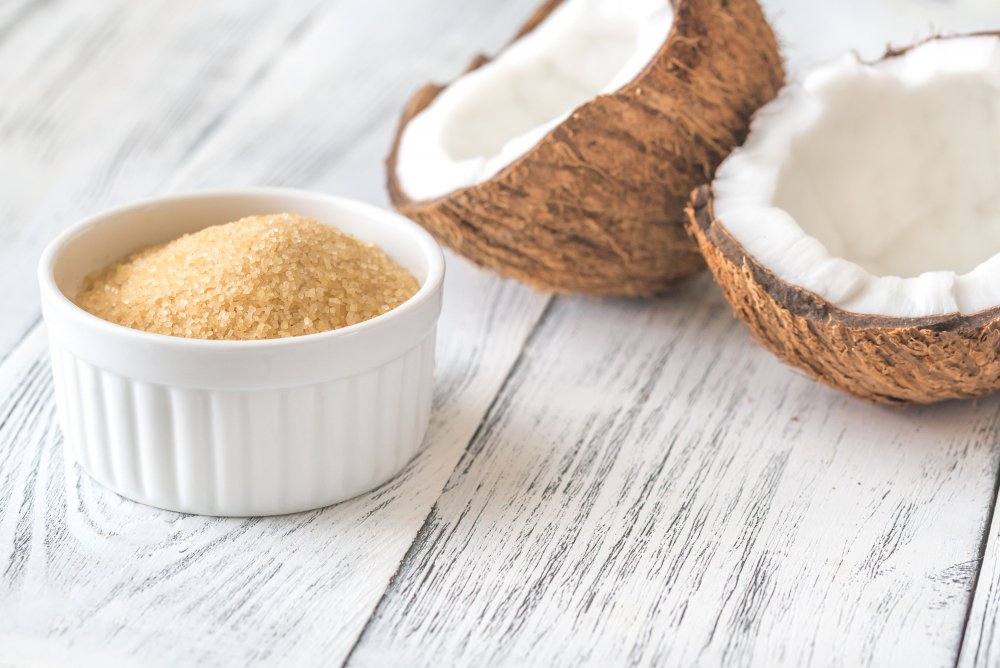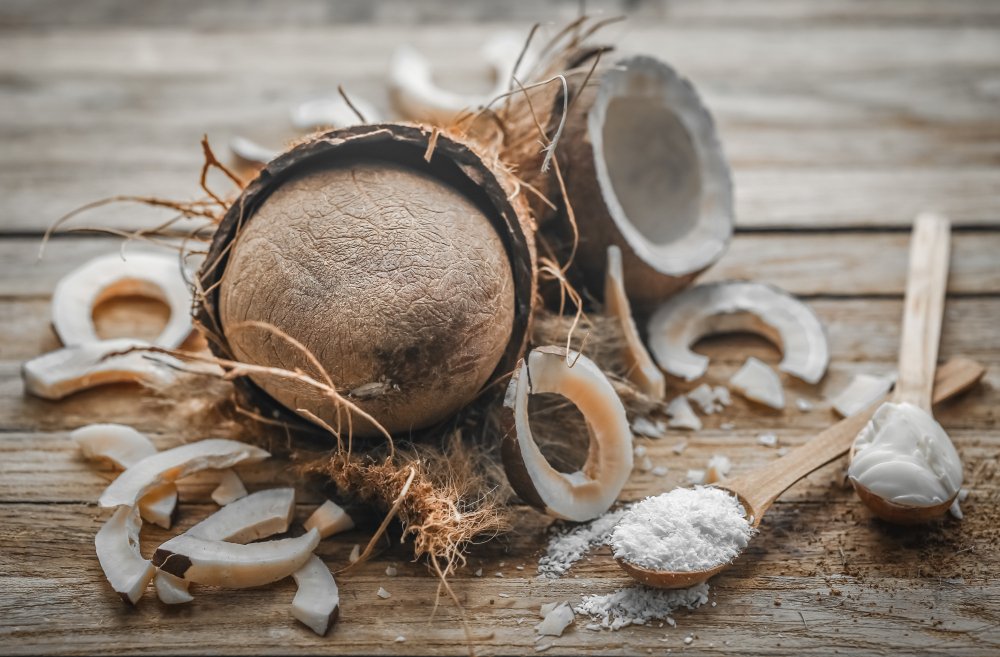In a world increasingly conscious of its environmental footprint, the search for sustainable alternatives extends to even our everyday indulgences. One such promising option is coconut sugar, a natural sweetener gaining popularity for its delightful taste and remarkable environmental benefits. This article explores the positive impact of coconut sugar on both the environment and the livelihoods of local farmers, showcasing its potential as a truly sustainable and ethical choice.
A Sweeter, Greener Alternative
Coconut sugar offers a compelling alternative to refined white sugar, a product often associated with environmentally damaging practices. The production of white sugar involves extensive land clearing for sugarcane plantations, often leading to deforestation and habitat loss. Furthermore, the refining process is energy-intensive and generates significant waste. In stark contrast, coconut sugar production utilizes the sap of coconut palm trees, a readily renewable resource. These trees are already widely cultivated, minimizing the need for further land conversion. The sap is collected sustainably, ensuring the health and longevity of the palm trees, unlike the destructive harvesting methods employed in some sugarcane farming. This sustainable harvesting contributes to a smaller carbon footprint compared to traditional sugar production.
The unique production method of coconut sugar also translates to less water consumption. Unlike sugarcane, which requires vast amounts of irrigation, coconut palms largely rely on rainfall. This inherent water efficiency makes coconut sugar a more responsible choice in regions facing water scarcity. Moreover, the processing of coconut sap into sugar is significantly less intensive, requiring less energy and generating less waste compared to the complex refining process of white sugar. This contributes to a cleaner, more environmentally friendly production chain, minimizing the overall negative impact on the planet.
The lower processing intensity of coconut sugar also translates to a less processed, more nutrient-rich product. Unlike refined white sugar, which is stripped of its natural minerals and vitamins, coconut sugar retains several essential nutrients, including potassium, iron, and zinc. This makes it not only a healthier alternative but also a more sustainable choice, as it minimizes the need for synthetic nutrient additions during processing. The natural sweetness of coconut sugar also means less need for artificial sweeteners or additives, further reducing its environmental impact.
Finally, the production of coconut sugar often involves minimal chemical inputs, unlike many other commercial sugar crops. This reduces the risk of soil and water contamination, protecting biodiversity and preserving the health of ecosystems. The natural processes involved in coconut sugar production create a virtuous cycle, promoting sustainable agriculture and minimizing environmental damage.
Empowering Farmers, Protecting Land
The shift towards coconut sugar production presents a significant opportunity for empowering local farmers, particularly in tropical regions where coconut palms thrive. Unlike large-scale sugarcane plantations that often displace smallholder farmers, coconut palm cultivation can be easily integrated into existing farming systems. This allows farmers to diversify their income streams and improve their livelihoods without resorting to unsustainable land-use practices. The demand for coconut sugar provides a stable market for their produce, reducing their economic vulnerability and enhancing their resilience.
The cultivation of coconut palms also promotes biodiversity and protects existing ecosystems. Unlike monoculture sugarcane plantations, which often lead to habitat loss and reduced biodiversity, coconut palms can be integrated into diverse agroforestry systems. This creates a more resilient and sustainable landscape, providing habitat for various plant and animal species. The intercropping of coconut palms with other crops also helps to prevent soil erosion and improve soil fertility, enhancing the overall health of the land.
The decentralized nature of coconut sugar production also contributes to greater economic equity. Unlike the centralized processing of sugarcane, coconut sugar production often involves local communities and small-scale businesses, fostering economic development at the grassroots level. This decentralized model ensures that the benefits of coconut sugar production are more evenly distributed, empowering local communities and promoting economic justice.
This empowerment extends beyond financial benefits. The sustainable production methods associated with coconut sugar often lead to improved working conditions for farmers and laborers. Reduced reliance on harsh chemicals and intensive labor practices contributes to a healthier and safer work environment. This focus on social responsibility further enhances the ethical appeal of coconut sugar as a sustainable alternative.
Sustainable Sweetness: Coconut’s Promise
Coconut sugar’s sustainable attributes extend beyond its production methods. The coconut palm itself is a remarkably versatile plant, offering a wide range of valuable products beyond sugar. The tree provides coconut water, coconut milk, coconut oil, and coconut fiber, all of which have diverse applications. This multi-use nature minimizes waste and maximizes the economic value of the coconut palm, contributing to a more efficient and sustainable use of resources.
The relatively low transportation costs associated with coconut sugar also contribute to its environmental friendliness. Compared to other sweeteners that often require long-distance transportation, coconut sugar is often produced and consumed locally or regionally, reducing greenhouse gas emissions from transportation. This localized production system fosters shorter supply chains, minimizing the environmental impact associated with long-distance shipping and storage.
The inherent durability and longevity of coconut palms further enhance their sustainability. These trees can live for decades, providing a continuous supply of sap for sugar production. This long-term productivity reduces the need for frequent replanting, minimizing land use and environmental disruption. The resilience of coconut palms to various environmental conditions also makes them a robust and adaptable crop, contributing to a more sustainable agricultural system.
Furthermore, the growing popularity of coconut sugar is driving innovation and research in sustainable agricultural practices. This increased attention is leading to the development of improved farming techniques and processing methods, further enhancing the environmental and social benefits of coconut sugar production. This ongoing commitment to research and development ensures that coconut sugar remains a sustainable and ethical choice for the future.
Eco-Friendly Indulgence: The Coconut Choice
Choosing coconut sugar is not just about indulging in a delicious and healthy sweetener; it’s about making a conscious decision to support sustainable agriculture and protect the environment. By opting for coconut sugar, consumers directly contribute to the preservation of natural ecosystems, the empowerment of local farmers, and the reduction of their own carbon footprint. It’s a small change with a significant impact.
The shift towards coconut sugar represents a powerful message to the market, encouraging the development and adoption of more sustainable agricultural practices. The growing demand for this eco-friendly sweetener is driving positive change throughout the supply chain, promoting responsible farming techniques and reducing the environmental burden of traditional sugar production. This consumer-driven change is essential for creating a more sustainable food system.
By choosing coconut sugar, consumers actively participate in creating a more just and equitable food system. They support the livelihoods of smallholder farmers, promote biodiversity, and reduce the environmental damage associated with conventional sugar production. This conscious consumption is a powerful tool for positive change.
Ultimately, the decision to choose coconut sugar is a vote for a sweeter, greener future. It’s a choice that aligns personal indulgence with environmental responsibility, fostering a more sustainable and equitable world for generations to come. Embrace the eco-friendly indulgence; choose coconut sugar.
Coconut sugar presents a compelling case for a sweeter, greener future. Its sustainable production methods, positive impact on local farmers, and overall environmental benefits make it a truly exceptional alternative to traditional sweeteners. By choosing coconut sugar, consumers can indulge their sweet tooth while contributing to a more sustainable and equitable world. The time for change is now, and coconut sugar offers a delicious and responsible path forward.


